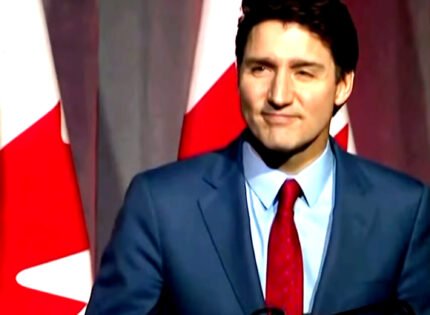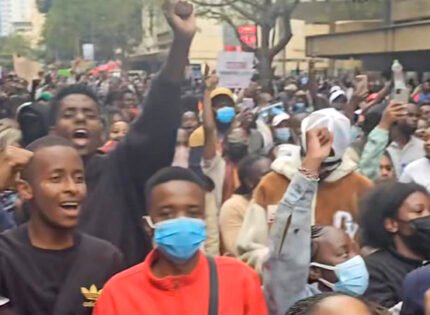SOUTH AFRICA
SOUTH AFRICA REACTS TO DONALD TRUMP’S TWEET
An order by American President Donald Trump to U.S. officials to “study the South Africa land and farm seizures” due to “large-scale killing of white farmers,” has drawn an angry reaction in a country where race and land ownership remain part of her contentious legacy.
His tweet was inspired by a segment of Fox News on Wednesday 22nd August when host Tucker Carlson alleged that the South African president, Cyril Ramaphosa, was seizing land from South African citizens who were the wrong skin color and termed this act as immoral.
South African President, Cyril Ramaphosa responded to the tweet at a biodiversity conference in Limpopo. “Donald Trump must leave us alone. When we were facing apartheid, when we were facing oppression … he was not here. He did not fight side by side with us. And we were able, on our own – yes, with support of progressive forces in the world – to resolve the apartheid question.”
Ramaphosa insisted that South Africa does not belong to Mr. Trump, and “he can keep his America; when I meet him I will tell him.”
Nkosi Mandela, the grandson of the late President, Nelson Mandela, said Thursday, “Trump once again demonstrates a total ignorance of reality. We will not be dictated to, threatened or pressured into accepting a land deal that perpetuates the injustices of the past.”
Despite Mr. Trump’s claims about the “large scale killing of farmers.”
The findings of research published in June 2018 by AgriSA, one of the country’s largest farmer organizations, showed that farm killings had reached a 20-year low in 2018.
However disturbing this may be, President Trump is not the only foreign national to take aim at South Africa’s land reform policies. Earlier in the year Australian immigration minister Peter Dutton suggested that white South African farmers should receive special visas due to the “horrific circumstances,” they faced at home.
ZIMBABWE.
EMMERSON MNAGAGWA SWORN IN AS PRESIDENT FOR THE SECOND TIME
The journey to the presidency has not been easy for Emmerson Mnagagwa who was sworn in for the second time on August 25th.
Mnagagwa, of the ZANU P. F is credited with toppling the country’s 37-year ruler Robert Mugabe in a bloodless coup. He was sworn in shortly after the coup and ran for the elections and won against MDC Alliance leader Nelson Chamisa.
Mr. Chamisa alleged that the elections were rigged in favour of ZANU P.F and asked the courts to intervene. He accused the electoral commission of delaying the release of results so they could play with the numbers and hundreds of people took to the streets of the capital Harare. The military repressed the protests, killing six people. With 50.6% of the vote, Mnangagwa was declared the winner and his victory was upheld by a unanimous Constitutional Court opinion in a ruling released on Friday 24th August.
Although Mnagagwa ushered in an era of historic political freedoms in the country, his opponent, Mr. Chamisa believes Zimbabwe will continue to suffer under ZANU P.F.
Meanwhile the American government has maintained travel and financial sanctions on senior officials of the ruling Zanu-PF party, including Mnangagwa, and some state-owned firms. US support will be key to Zimbabwe securing any funding from the International Monetary Fund.
The European Union on the other hand has progressively removed sanctions, which now only remain on Mugabe and his wife Grace.
Giving the blessing before the oath of office, religious leader Andrew Wutawunashe appealed to President Donald Trump and other leaders to lift sanctions in order for the country to thrive.
“We are saying to you … we have at last found a man who can make our small nation a great nation. Please help him.” He said as the crowed cheered to the suggestion.
NAMIBIA
NAMIBIA: GERMAN GOVERNMENT RETURNS HUMAN REMAINS
On Wednesday 29th, August, Germany handed back 25 of 300 hundred skulls and human remains seized from Namibia a century ago after the slaughter of indigenous people under German colonial rule.
In what historians call the first genocide of the 20th century, soldiers of German Kaiser Wilhelm slaughtered some 65,000 Herero and 10,000 Nama tribes in a 1904-08 campaign after a revolt against land seizures by German colonists.
From this massacre over 300 of the victims’ skulls were sent to Germany for experimentation where racial anthropologists studied them as part of an attempt to justify a theory about the superiority of Europeans. These studies were carried out with the aim of pushing European racial superiority propaganda.
Even though the study was long discredited, the German government still has a large number of these skulls, which it has been returning in piecemeal.
Skulls from Germany’s other African colonies, including modern day Cameroon, Tanzania, Rwanda and Togo, were also used in the discredited studies.
“Today, we want to do what should have been done many years ago – to give back to their descendants the remains of people who became victims of the first genocide of the 20th century,” said Petra Bosse-Huber, a German Protestant bishop.
Namibian Education Minister Katrina Hanse-Himarwa said last week that the government would create a group to decide whether to bury or display the repatriated skulls that had been kept in German museums.
The descendants of those who were killed are still waiting for an apology from the German government.
Germany has acknowledged “moral responsibility” for the killings but to avoid compensation claims, has avoided making an official apology for the massacres.














